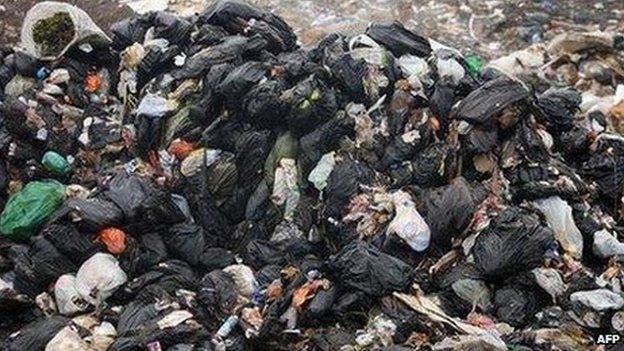Salmon fishing: Bid to protect stocks in Faughan River
- Published
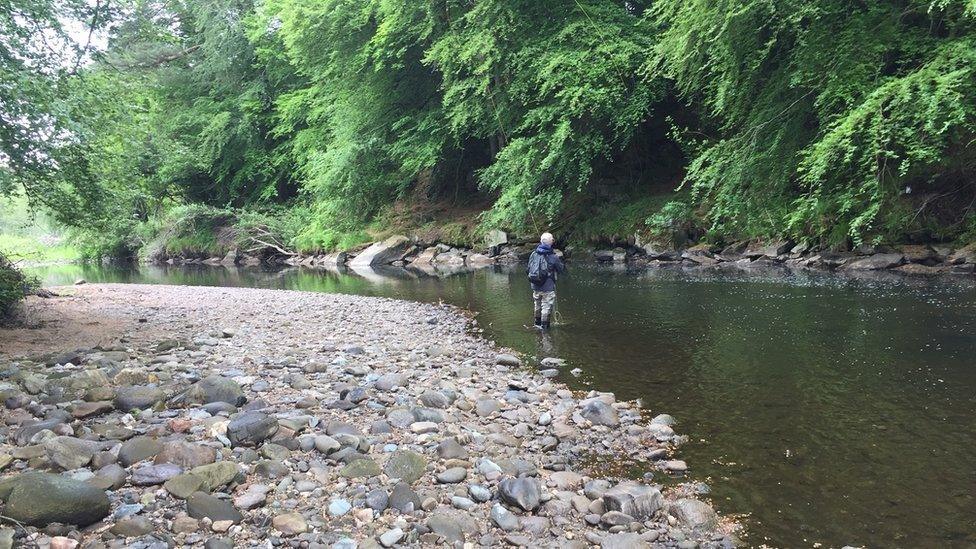
The Faughan River is County Londonderry is one of Northern Ireland's premier salmon rivers
It's the start of the season on the Faughan River and committed angler Seán McLaughlin is back at his favourite pools.
This is one of Northern Ireland's premier salmon rivers, afforded European protection as an important spawning ground.
Seán has fished the Faughan for 32 years. He claims he once fell asleep standing up after casting for 17 hours straight.
But like other anglers he's seen the numbers of Atlantic salmon returning to the river drop over the years.
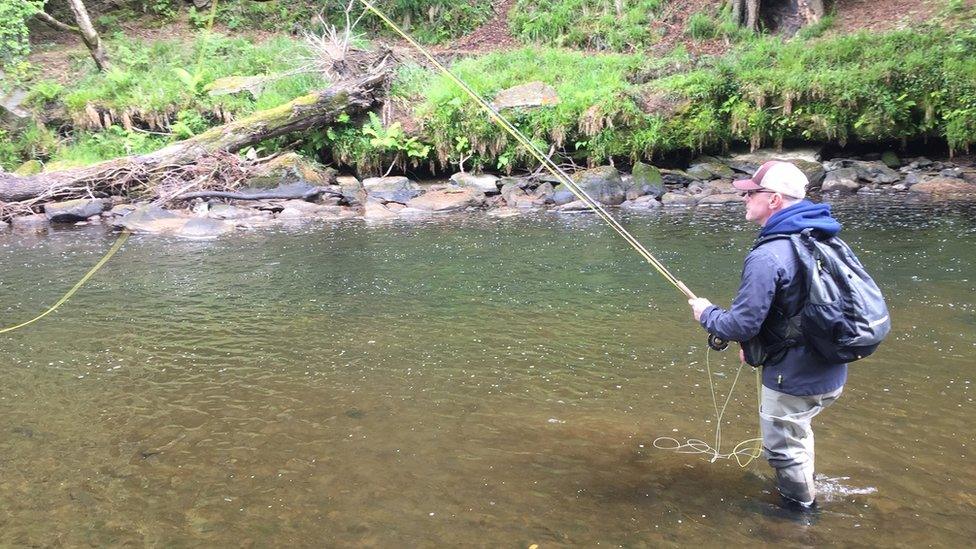
Seán McLaughlin has fished in the Faughan for 32 years
Tens of thousands of juvenile fish or smolts have just left to head out to sea - the run is sparked by rising water temperatures.
But just 5% of them will return in a couple of years to spawn.
It's what happens out in the ocean that's to blame.
Predation by other animals, climate change and the spread of disease by commercial fish farms are all mentioned.
'Catch and release'
For Seán it's a "complex picture without one single answer".
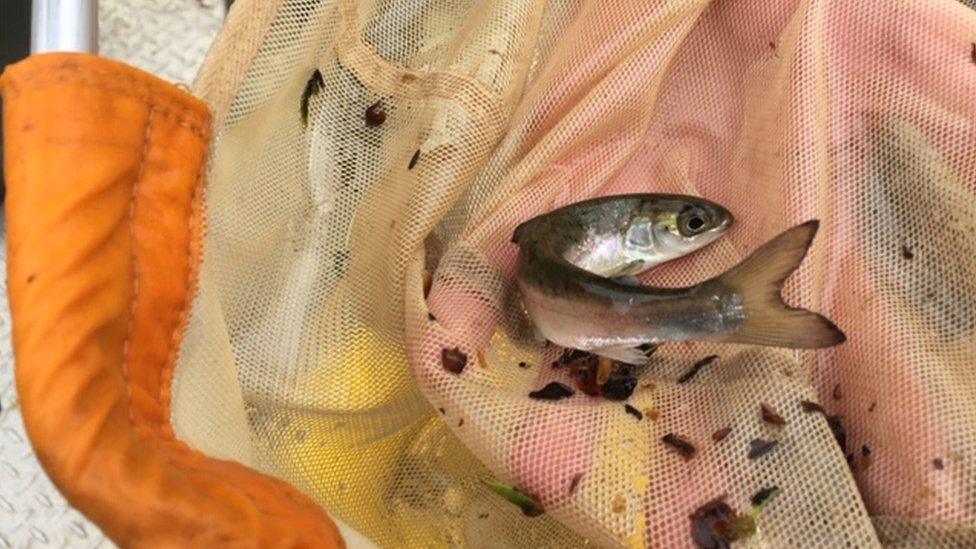
Some of the catch is returned to the river by conservationists
He's a member of the River Faughan Anglers, a 700-strong group that seeks to conserve the fish and improve the habitat.
Many members are playing their part by moving to "catch and release" and there's a bag and annual limit for fish that are taken.
He has seen the numbers of fish caught by the club fluctuate dependant on conditions.
There are about 1,200 fish in a good year and 600 in a dry year like 2018, with half of those returned to the water.
'Worldwide trend'
The Loughs Agency does much of the science to try and build a picture of fish stocks and health.
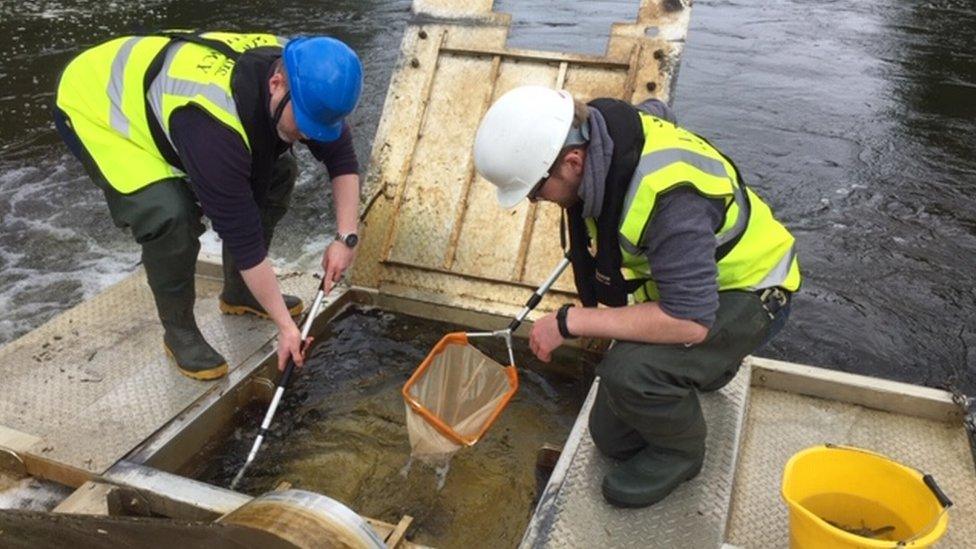
Loughs Agency staff monitor stock numbers by trapping juvenile fish
They trap smolts to count, weigh and measure the salmon stocks in the Faughan.
Fish biologist Mark McCauley says there's not a single reason for the decline in returning salmon numbers but it's been a 20-year worldwide trend.
The Loughs Agency is trying to give the juvenile fish the best possible start in the freshwater environment before they head for the north-west Atlantic.
No return
That means improving the habitat to provide better water quality, food and shelter.
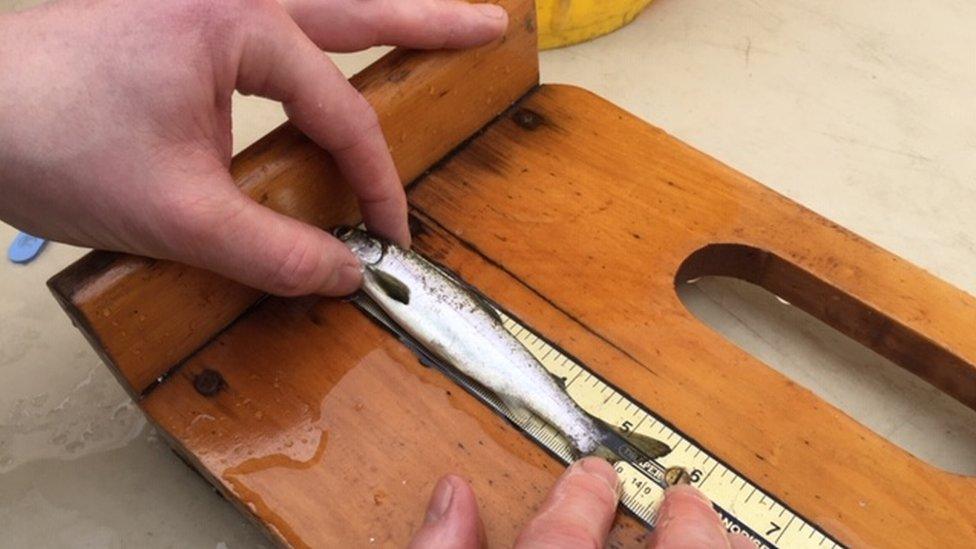
The smolts are weighed and measured by Loughs Agency staff
Tree planting along the river banks is a big part of that.
He says the idea is to send as many smolts out in the best possible condition so that greater numbers of them have the condition and strength to return in a couple of years.
Conditions are far from perfect on the Faughan for Seán and there's no return on a couple of hours fishing.
Water levels are low and this is a spate river that depends on rainfall.
But he's happy to be out casting a line.
As he says, there's more to angling than catching fish.
- Published3 August 2016
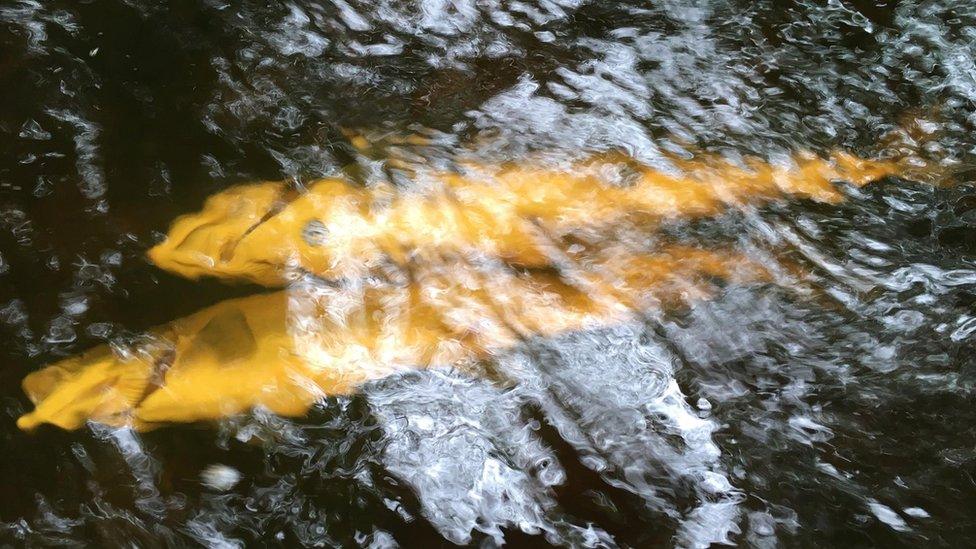
- Published18 July 2014
